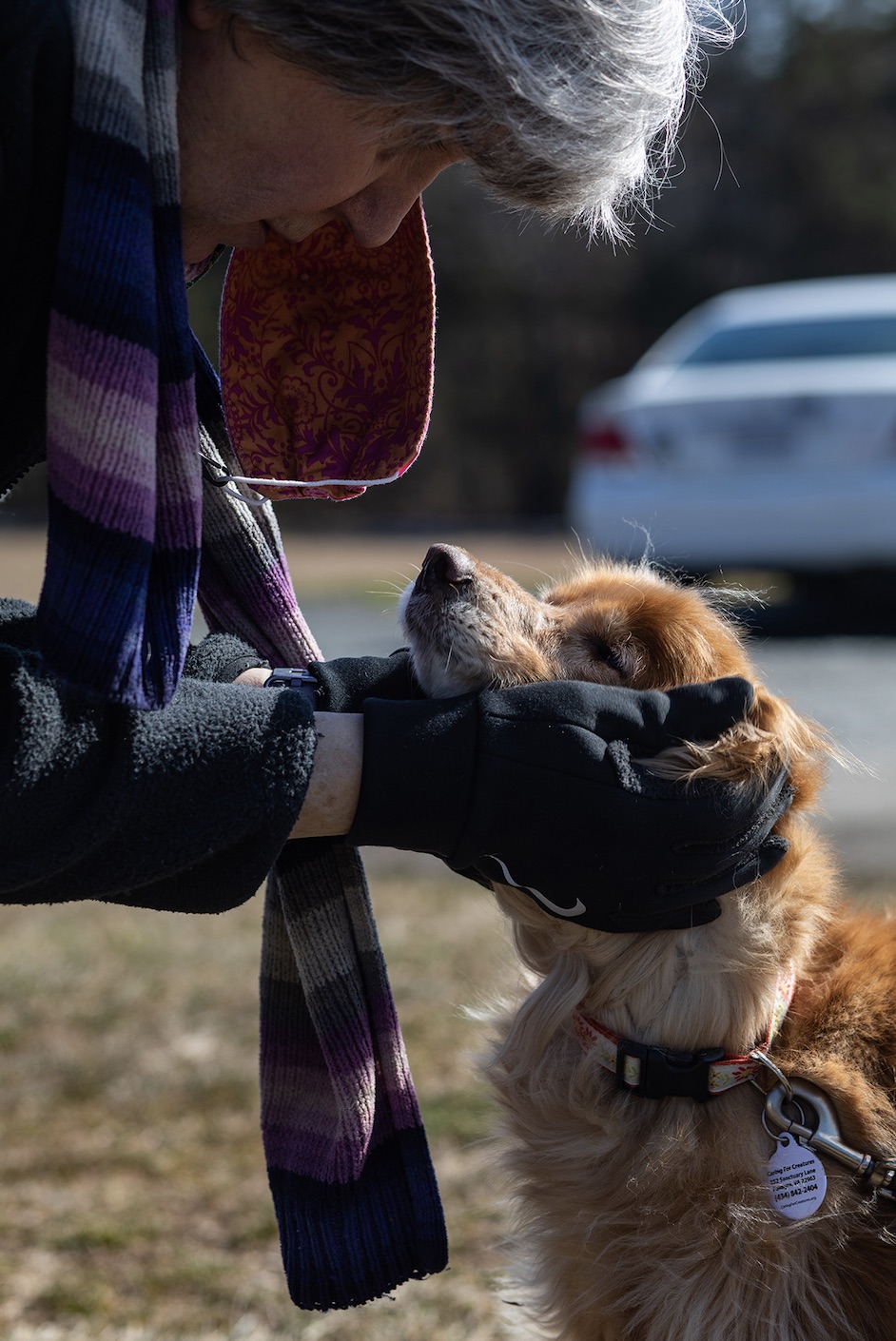The past year has been one of unforeseen circumstances and challenges. But an unexpected outcome worth celebrating is that pet adoptions around the country—and right here in the Charlottesville area—are at an all-time high. And now, almost a year into the pandemic, it seems like these adoptions are sticking.
In 2020, the Charlottesville-Albemarle SPCA processed 3,758 pet adoptions—more than any previous year in the organization’s history. Chief Executive Officer Angie Gunter says, “We are incredibly grateful to have continued to place animals with families despite the extraordinary circumstances brought on by the pandemic.”
Another no-kill sanctuary in town, Caring for Creatures, saw a similar increase in adoption applications, particularly in the early months of the pandemic. “In April, we easily did four times the adoptions that we normally do,” says CFC President and Founder Mary Birkholz. “We couldn’t keep up with the adoption applications.”
These facilities don’t expect the pace to slow any time soon. “We are optimistic that pet adoptions will continue to remain steady throughout 2021,” Gunter says. “We have placed 47 more pets in homes so far this year compared to the same time last year.”
Increased pet adoptions haven’t just benefited shelters and sanctuaries. For pet adopters, their new furry companions are the bright spots in otherwise tumultuous times. Charlottesville resident Lauren Goetzinger adopted Beatrice, a 15-year-old black cat, from the CASPCA in May 2020. “Life has greatly improved,” says Goetzinger. “The first few months of the pandemic were really hard in general, but especially living alone in quarantine. I needed a companion during this tough time.”
Goetzinger had considered adopting a pet for some time, but her work schedule kept her out of the house for long stretches. After transitioning to working from home in March, she saw it as a perfect time to adopt. “It gave me an opportunity to bond with her,” says Goetzinger. “I really urge anyone who is looking at animals to not overlook a senior. I don’t think I could have gotten a sweeter cat.”
For those who may find the long-term commitment of adoption to be overwhelming, fostering is a great alternative that provides temporary solace for both the person and pet, say the shelter directors. Similar to the upward trend in adoptions, more people in the community have volunteered to foster dogs and cats in the past year.
Increased fostering has been especially vital, as shelters have had to limit volunteering for safety reasons related to the pandemic. More fostering has also been a wonderful development for the animals, who benefit from being in home environments rather than institutions. At the CASPCA, more than 70 percent of pets have been placed into foster care since March 2020. “Not only did they thrive in their foster homes, but they were also more likely to be adopted due to promotion by their fosters,” says Gunter.
“This has been the type of sheltering that has needed to happen for years,” says Humane Society/SPCA of Nelson County Director Lindsey Huffman. “Integrating fosters into the community and having them be part of everyday lives while they’re waiting for permanent homes has been the most beautiful thing to come out of the past year.” The HS/SPCA is working to expand its adult dog fostering program in 2021 to get even more pets out of the shelter and into temporary homes.
While increased adoptions and fosters have been good things during COVID-19, there has been concern about the possibility of a rise in animal surrenders and returns. Potential factors include financial hardship brought on by the pandemic and hasty decisions to adopt pets.
Fortunately, area shelters and sanctuaries have not reported increases in surrenders or returns. In fact, these numbers have decreased. At the CASPCA, for example, 204 fewer pets were surrendered in 2020 than in 2019, according to Gunter.
While Caring for Creatures has also not reported an increase, it has received calls from concerned pet owners about behavior changes. “People being home with their animals can be a positive thing, but it is also a shift in routine for the animal. Some are acting out a little bit, reflecting the state of mind of their humans,” says Birkholz. (You’re not imagining it: Your cat really does want you to get out of its way.) In most cases, these behavior shifts can be managed without the animals having to be rehomed.
While it has been a banner year for pet adoptions, the needs of these nonprofit organizations remain great, particularly for supplies and monetary donations. “We are incredibly appreciative of the support from our community, as none of the work that we do would be possible without their continued support,” says Gunter.
If you are interested in adopting a pet, the CASPCA, CFC, and HS/SPCA are accepting adoption applications online. Each facility is open by appointment only. Check their websites for details about adopting, fostering, and donating (caspca.org; caringforcreatures.org; nelsonspca.org).




